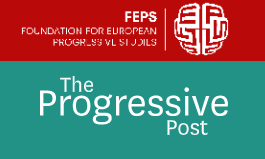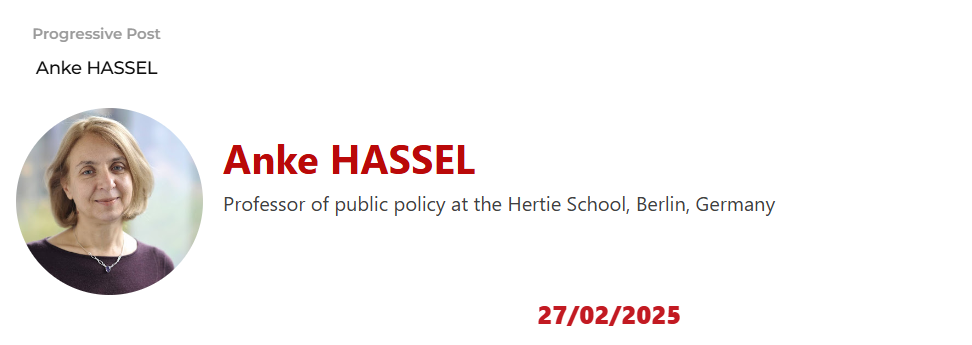Welcome to DU!
The truly grassroots left-of-center political community where regular people, not algorithms, drive the discussions and set the standards.
Join the community:
Create a free account
Support DU (and get rid of ads!):
Become a Star Member
Latest Breaking News
Editorials & Other Articles
General Discussion
The DU Lounge
All Forums
Issue Forums
Culture Forums
Alliance Forums
Region Forums
Support Forums
Help & Search
The SPD's dramatic defeat raises major questions for progressive politics in Germany

https://feps-europe.eu/the-spds-dramatic-defeat-raises-major-questions-for-progressive-politics-in-germany/

The decline of social-democratic parties in Western Europe is not new, but it often marks political turning points. Sunday’s German election may be such a moment, highlighting the deeply unpopular performance of the first progressive coalition in Germany, the strongest far-right surge since Nazi Germany, and the worst election result in the SPD’s 150-year history. This election raises many questions, but for the centre-left, two of them stand out: did the progressive coalition fuel the far right? And how can the SPD reconnect to its core constituencies?
The downfall of the progressive coalition
Despite an enthusiastic start, the progressive coalition’s support quickly collapsed. Russia’s invasion of Ukraine in early 2022 forced the government to overhaul Germany’s energy supply within months while also promoting a green transition through renewable energy expansion and heat pumps. The coalition pursued an ambitious policy agenda, leveraging budgetary funds initially earmarked for Covid-19 relief to finance energy subsidies and industrial policy.
On social issues, the coalition was remarkably progressive and unified. It introduced a liberal immigration law, reformed citizenship policies, legalised cannabis and enacted a self-identification law on gender. However, cracks emerged when Germany’s constitutional court ruled in November 2023 that repurposing those extra funds circumvented the debt brake. Since then, the coalition struggled to reconcile public spending with fiscal constraints. The coalition – comprising a centre-right liberal party (FDP) and two centre-left parties (Greens and SPD) – fractured over budget priorities. The FDP demanded spending cuts, while the Greens and SPD pushed to loosen the debt brake or invoke emergency fiscal measures. Meanwhile, Germany entered its second year of recession and divisions over Ukraine aid intensified.
The government’s progressive social policies contrasted sharply with mounting economic struggles, creating the perception that it prioritised left-wing ‘pet projects’ over everyday concerns. Inflation, wage loss, sky-rocketing rents, a strained healthcare and education system and the ongoing influx of migrants left many feeling abandoned. The far right capitalised on this discontent, positioning itself as the voice of native Germans rather than all residents of Germany. Meanwhile, the centre-right, which had occupied a moderate stance under Merkel, shifted further right, aligning with the far right on social and migration issues (though not on Ukraine).
A shift to the right and rising polarisation................................
snip
1 replies
 = new reply since forum marked as read
Highlight:
NoneDon't highlight anything
5 newestHighlight 5 most recent replies
= new reply since forum marked as read
Highlight:
NoneDon't highlight anything
5 newestHighlight 5 most recent replies
The SPD's dramatic defeat raises major questions for progressive politics in Germany (Original Post)
Celerity
Mar 1
OP
GoreWon2000
(1,461 posts)1. The Greens will be part of the new coalition
because the CDU has said publicly that they won't form a new government with the far right so all hope isn't lost quite yet although I do share the overall concern.